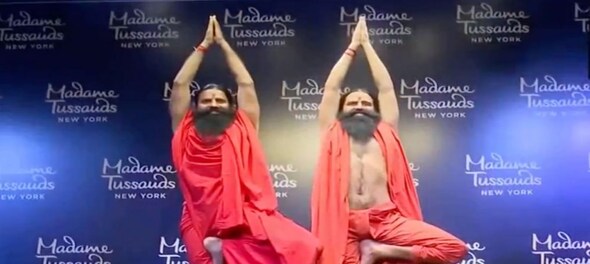
It is human to blow one’s own trumpet. By that yardstick, exaggeration is integral to advertising. Therefore, while the best toothpaste or moisturiser claim by all the brands in these product categories for example is kosher, the claim of best cure for an ailment needs to be tested on the touchstone of scientific evidence as it impinges on one’s health.
It is not only the gullible ones that are taken in by such claims but also the highly educated given the fact that when a member of a family falls sick, all the members suspend disbelief and even start looking for miracles.
Also Read: Supreme Court reproaches central govt for its inaction against Patanjali Ayurved's 'misleading ads'
In other words, the standards for puffery or exaggeration (used in advertisements) aren’t the same for medicines and other products. And mind you Baba Ramdev is a celebrity in the field of Yoga and Ayurveda. A celebrity is enjoined with greater responsibilities while endorsing a brand. Be that as it may.
And when the medicine advertiser simultaneously runs down his rivals especially from another stream of medicine, the gullible and not-so gullible patients are all the more confounded. This is precisely what has been happening with Patanjali arguably the market leader in Ayurveda.
Thus, the Supreme Court has issued on February 27, a contempt notice to Patanjali Ayurveda and its managing director Acharya Balkrishna for disregarding its order against misleading advertisements. The court has also prohibited Patanjali from promoting its medical products until further notice. During the hearing on the Indian Medical Association's (IMA) plea regarding misinformation against Allopathy, the top court criticised Patanjali conglomerate for being incorrigible and not heeding its earlier warnings.
Competition law all over the world frowns upon disparagement of rival brands unless such disparagement is done with clinical and scientific evidence. Indeed, this is what comparative advertising is all about.
In 2010, the Rin ad openly named its rival — ‘Tide se kahin behtar safedi de Rin’ (Rin gives better whiteness than Tide), without getting into specific, feature-to-feature comparison. Tide could have gone to Court accusing Rin of disparagement but Rin’s defence could have been laboratory reports.
Earlier, HCL photocopiers took on Modi Xerox openly by making a comparative analysis. Truth be told, comparative advertising is any day better than the mushy celebrity advertising as it enlightens the wannabe buyers about the features of two or more brands. The Supreme Court would not have pulled up Patanjali had it gone to town with comparative advertising listing out feature by feature the superiority of its medicines vis-à-vis Allopathy’s (Modern Medicine) backed by scientific evidence that would stand expert scrutiny. Be that as it may.
But IMA felt aggrieved because Patanjali neither had the records to prove its own Ayurvedic medicines efficacy nor evidence to prove that Allopathy medicines for the same ailments were inferior or harmful though the common view is Allopathy medicines leave side effect whereas Ayurvedic medicines do not produce any side effect at all.
One however cannot go by hearsays in the matter of life and death. Steve Jobs, the founder of Apple Computers, paid with his life when he left his advancing cancer unattended by Allopathic doctors, chiefly oncologists, and reposed faith on a Himalayan Baba in Kullu. Even diehard adherents of alternative medicines like Ayurveda and Unani rush to Allopathy when in extremis. There are several types of specific treatments, including radiation, surgery, chemotherapy, among others, are available to an oncologist to treat cancer and he chooses the option depending upon what stage the cancer is, and, now-a-days, even the precise medicine according to the genetic nature of the person.
This however doesn’t mean Ayurveda is quackery, a western view to guard the turf of pharmaceutical MNCs. There are many Ayurvedic preparations that are good in whetting appetite and controlling indigestion. Herbal oils have been found useful in alleviating muscle pain. Balms using eucalyptus oil are time-tested in relieving headache. But the larger point is that the claims of medicines should be based on proven evidence and science.
(Edited by : C H Unnikrishnan)
First Published: Mar 5, 2024 1:20 PM IST
Check out our in-depth Market Coverage, Business News & get real-time Stock Market Updates on CNBC-TV18. Also, Watch our channels CNBC-TV18, CNBC Awaaz and CNBC Bajar Live on-the-go!


Vizag as executive capital, hike in welfare pensions: Key points in YSRCP's election manifesto
Apr 27, 2024 4:03 PM
Supreme Court verdict on EVMs — why upholding the voter’s trust is important
Apr 27, 2024 2:23 PM

